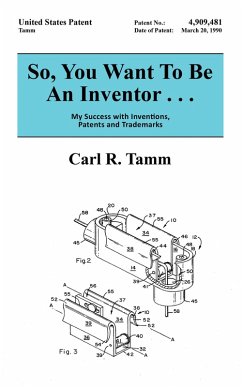
How to Get What You Want (eBook, ePUB)

PAYBACK Punkte
0 °P sammeln!
In "How to Get What You Want," Wallace D. Wattles presents a compelling synthesis of practical advice and metaphysical principles that aim to guide readers towards achieving their desires. The work is characterized by its straightforward prose, deeply rooted in the New Thought movement, which explores the power of positive thinking and the law of attraction. Wattles emphasizes that success is not merely a matter of luck or inherent talent, but rather a skill that can be cultivated through focused intention and specific mental exercises, making this text both a self-help manual and a philosophi...
In "How to Get What You Want," Wallace D. Wattles presents a compelling synthesis of practical advice and metaphysical principles that aim to guide readers towards achieving their desires. The work is characterized by its straightforward prose, deeply rooted in the New Thought movement, which explores the power of positive thinking and the law of attraction. Wattles emphasizes that success is not merely a matter of luck or inherent talent, but rather a skill that can be cultivated through focused intention and specific mental exercises, making this text both a self-help manual and a philosophical treatise on personal agency. Wattles, an influential writer and businessman, was profoundly impacted by the socio-economic challenges of his time, which inspired his exploration of the relationship between thought and achievement. His background as a student of human behavior and his engagement with other metaphysical thinkers of the early 20th century enable him to present a holistic view of success that integrates both practical steps and visionary thought. Wattles' work serves as a reflection of his belief in the transformative power of individual will and creativity, echoing the sentiments of a burgeoning self-improvement culture. Readers seeking clarity on how to manifest their desires will find Wattles' insights invaluable. This book serves as both a motivational guide and a philosophical framework, urging readers to harness their latent potential. "How to Get What You Want" is not merely a read; it is an invitation to embark on a journey of self-discovery and empowerment.
Dieser Download kann aus rechtlichen Gründen nur mit Rechnungsadresse in A, B, BG, CY, CZ, D, DK, EW, E, FIN, F, GR, H, IRL, I, LT, L, LR, M, NL, PL, P, R, S, SLO, SK ausgeliefert werden.













